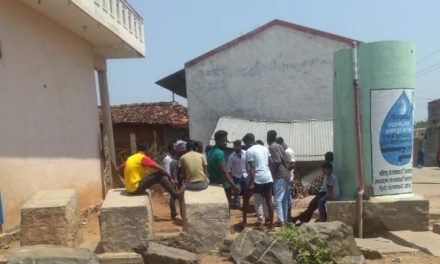BASAVANNA’S CAULIFLOWER FIELDS: Madhbhavi village, Vijaypura district
A.R. Vasavi
In early February, standing in their two and a half acre field of vegetables, Basavanna and his son, Ravi, had heaved a collective relief. The previous year’s rains had increased the water in the tube-well and now they looked forward to reaping a bountiful harvest of cauliflower and other vegetables. The prices were good and they hoped that their investment of about Rupees twenty five thousand, and all their own labour, would help bring in the much needed annual income.

Now, just as they were ready to harvest, the lockdown was announced. They were allowed to go early in the morning to sell their produce in Vijapura/Bijapur town. But the traders at the APMC yard had bargained them down. Yet, retail prices were nearly five times what they received. Crowded and anxious farmers gathered in the APMC yard or in the market and did not follow ‘social distance’ rules and the buyers were few and far between. After a day’s visit and experience of this nightmare, they decided against selling their vegetables. “Why risk contacting corona and then passing it on to the family?” rues Ravi, a young, earnest man, who unlike most of the young men in the village prefers to be identified as an agriculturist. The past years have seen sharp fluctuations in the monsoons. Either excessive rains, or, unusual for this region, even floods, or prolonged droughts have wreaked havoc in the agrarian communities. Out-migration has only intensified and it has been the remittance economy from those who have joined the swelling numbers of construction, domestic, and urban low-end service labour that has sustained many a household.
The corona virus disruption put paid to all the hopes that Basavanna and Ravi had. With desperation and despondency, the father-son duo decided that it may be best to let the cattle eat the vegetables and harvest a bit for the family and neighbours. They now owned only one cow, primarily for milk, and having sold the bullocks, their large cattle stall stood empty. Tractors now do the work of their bullocks and the loss of cow-dung manure means that more fertilisers, and therefore more pesticides, must be applied to the land. Caught in the treadmill of chemical fertilisers and pesticides, hybrid seeds and external markets, the family has only seen a series of losses and little or no gain. What seemed like a breakthrough in this vicious cycle of loss, is now darkened/blocked by an unseen virus, and the ill-planned lockdown which had no consideration for farmers like them. Like other agriculturists they have submitted to the punitive regime imposed on them. For brave and hard-working farmers like this father-son duo what will the government do for them, citizens who have all these years fed the nation?





Trackbacks/Pingbacks